Since I don’t use my blog enough, I thought I would post about what I’m watching and reading. These are meant to be short commentaries where I share my opinion, but this one is huge because I’m actually reviewing a massive Blu-Ray set. I’m glad that my first feature is on Stargate SG-1, it’s one of my all-time favourite shows.
What I’m watching right now: Stargate SG-1
Why is this show in steady rotation at my place? Well, I love the spirit of adventure and exploration that the show depends on while concentrating on an ensemble cast. Stargate SG-1 is about a specific team of people, which changes after season seven, but that’s a reflection of reality too. People get promoted, injured, or age out of a job, so it made sense that new blood was brought in. For the most part, I like how it was handled, and I’m a fan of Ben Bowder. Can we have more of him on TV, please?
While most of the show focuses on one enemy, they do strive to include stories between major engagements that explore new ideas and cultures. A look back at humanity’s past isn’t just a diversion, or filler, it becomes a major part of the story, taking us away from the original premise of the film. It’s a good thing, because the stranger things about this show really give it its own identity, which is something I think I learned from.
I enjoy the behind-the-scenes peeks included in the home releases too, but only indulge about a quarter of the time when I’m watching the discs or my backups using my home server. Yes, I have a tiny computer with hundreds of movies and shows copied from my DVD collection so I can turn my own streaming service on whenever I like on my TV or laptop. Stargate takes up a lot of room, and I’ll never delete it.
More than anything, I think Stargate finds great ways to show us jeopardy with the main characters even though we know they’ll be back in the next episode (except for a couple of times…), and they explored so many storylines in science fiction that new viewers don’t really know where our favourite team will be going next. With such variety explored in a format that is some of the best of 90’s television, I get to enjoy some comfort viewing while seeing what the excellent team that put the show together did. It reminds me of some storytelling fundamentals and challenges me to come up with something they didn’t in my own science fiction.
Why am I talking about this show now?
This month I finally picked up Stargate SG-1 on Blu-Ray. I’ve wanted to see the series in the best quality possible for a long time, especially since I’ve been watching the show about once every 1-2 years. I did catch the episodes on Canadian TV when they first aired up here sometime before that, but I didn’t see every episode in the widescreen format until I got my hands on the DVD’s while I was stuck on my back for a week nearly twenty years ago.
Since then I’ve backed up those DVD’s on a home server, but I’ve been aware that something called ‘DVD Rot’ is creeping into my collection. The first to go was my Buffy the Vampire Slayer boxed set, which had several failed discs the last time I checked it out a few years ago. I keep my collection in a dry, smoke-free, cool environment, so it’s not how I treat my discs, it’s the simple degradation of the materials that the DVDs were made with. I know that my Stargate SG-1 discs are going to fail eventually. So, when this Blu-Ray edition set came up for about $99.99 USD, I put it on my list and I finally got to it, aware that Blu-Rays are made to last longer.
The original DVD set came with an incredible pile of special features. I believe that there are only two episodes without commentaries from the actors, directors, writers, special effects crew and others. Considering that they all sat down to do these for free, I see this as a gift to the fans. I haven’t heard them all, but I find real value in listening to the behind-the-scenes stuff about some of my favourite episodes.
About the Content in the Box Set:
The series is as it played on Showtime, and then on the SyFy channel for the most part. Instead of spending millions of dollars on re-scanning and re-assembling each episode from the negatives, the company responsible for the Blu-rays upscaled them digitally, so there are some soft edges here and there, but the picture looks very good compared to my DVD set, so there is only gain here as far as I’m concerned. The sound is super clear, even though there are some caveats that the more expansive review on Blu-Ray.com goes into.
The original cut of the double episode premiere of the show is used, so there’s full frontal nudity, and the re-cut movie version of these episodes, Children of the Gods, that was made for Blu-Ray release near the end of the show’s run isn’t included, which is disappointing. I enjoy the re-cut version quite a bit. Brad Wright, the showrunner, didn’t simply cut the nudity out, he addressed issues that he had with pacing and smoothed some of the rough edges out of the original production without reshooting, but going from the original negatives. In his eyes, the original double episode suffered from notes that were handed down from Showtime, who required the nude scenes, possibly along with a few other things that held the show back until episode three. I like both cuts, so it’s too bad that they don’t provide that Brad Wright version of Children of the Gods since it’s more suitable for a broader audience who don’t really like the Showtime touch.
The other things that are missing from the boxed set are the original film along with the two made-for Blu-Ray movies that followed the 10th season, which are fantastic. I have those on my shelf on Blu-Ray already, so it’s no big deal to me, but it’s sad that people in other parts of the world may have to hunt them down on eBay or worse.
The only other nitpick I have is the packaging. You can tell this came out of a budget Blu-Ray production studio because they put this 40+ disc set in a simple blue box filled with plastic booklets that are notorious for scratching discs. I spent another $35.00 on proper cases that store the discs properly and will gladly print my own covers. The cover they used doesn’t have Daniel Jackson in it, since they went with Jonas Quinn instead. I like Jonas Quinn, but he was only around for a season plus a couple of episodes, so I don’t think he should be on the series cover. The gate surrounding the characters is a crappy copy-paste job. This may not bother most people, but I have a design background, so it’s a bit irksome to me.
Overall, I think it’s a show worth having a copy of because chasing it around on different streaming services that don’t provide the same level of quality is a terrible experience, especially since some of the services are now showing advertising even after charging a monthly fee. I’d rather slip a disc in.
Should you buy it?
For anyone who loves the show and doesn’t already have the DVD’s, or a way to back them up, I would say you should. If you plan on watching it more than once, or you have little ones who will be handling the discs, I suggest you get some sturdier empty cases so they’re easier to handle with care.
The Blu-Ray version also includes all of the extended episodes, most of which I didn’t see because they weren’t included in my version of the DVD set. Threads, being over 60 minutes, is a real stand-out. I enjoyed the extra character development.
If you have the DVDs and have made a dependable backup, then you may want to pass. The upgraded quality is great, but the first three seasons don’t benefit quite as much in my opinion. The last three seasons really look amazing since they were shot digitally, so that’s worth considering. There are no extra special features worth crowing about in comparison to the DVD set, so that’s not a reason to pick this up.
As someone who has been collecting movies and TV shows on old-school spinning media for a long time, I have to say that I do not think that this series will get a Star Trek style full remaster from the original negatives using new special effects technology. Those days are all but over, because the negatives are slowly rotting no matter how they’re kept, and Amazon / MGM are not likely to spend millions of dollars on the project. So, my advice is not to wait if you want a higher quality experience, this will be it for at least five to ten years, when I predict that AI will touch the footage up while it remakes the special effects. Then we may have another debate on our hands.
If you want to see a more complete review, check out Blu-Ray.com’s post. https://www.blu-ray.com/movies/Stargate-SG-1-The-Complete-Series-Blu-ray/282609/#Review
Thank you for reading. Future What I’m Watching posts won’t be nearly as long.
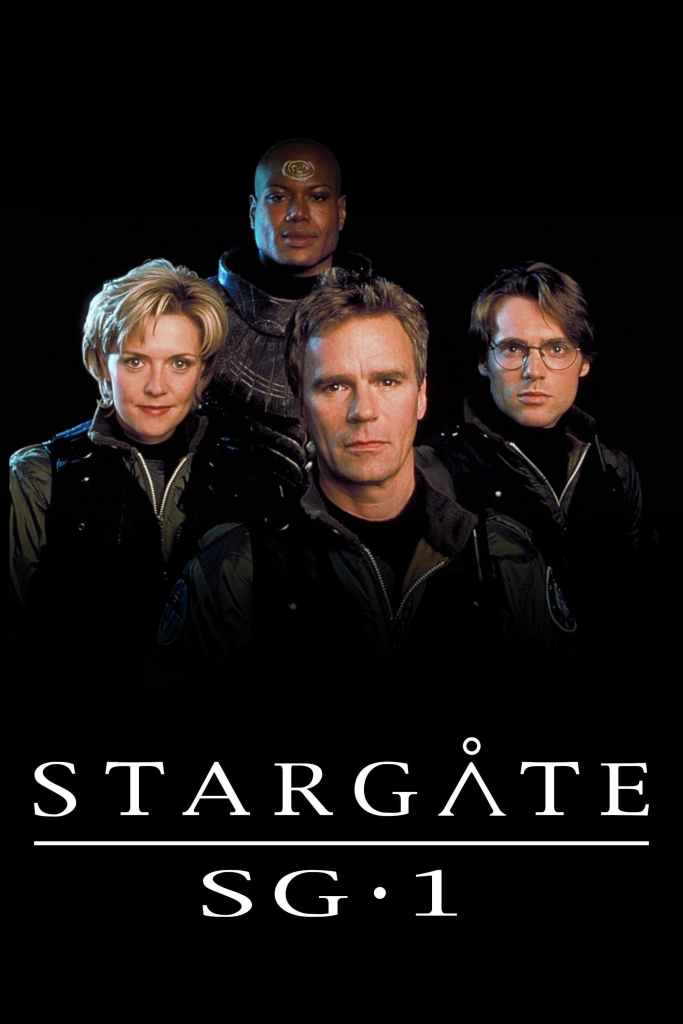

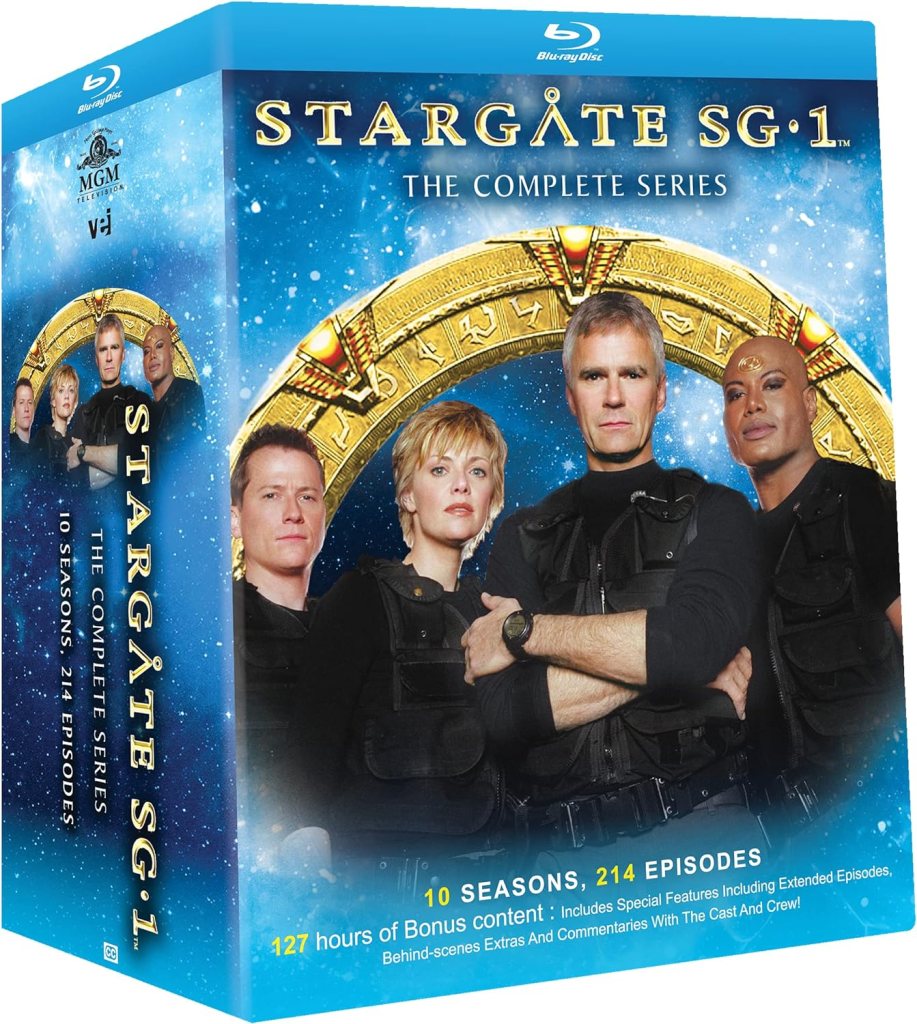
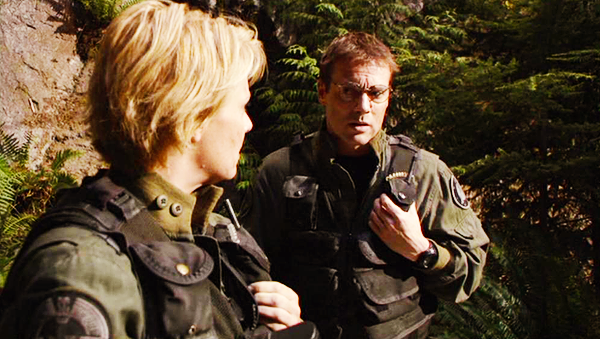
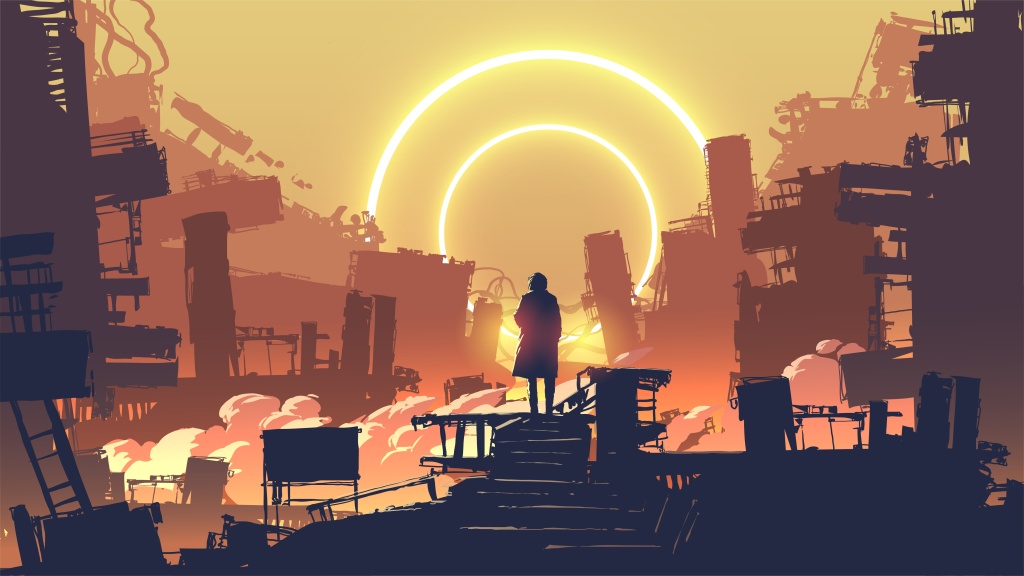
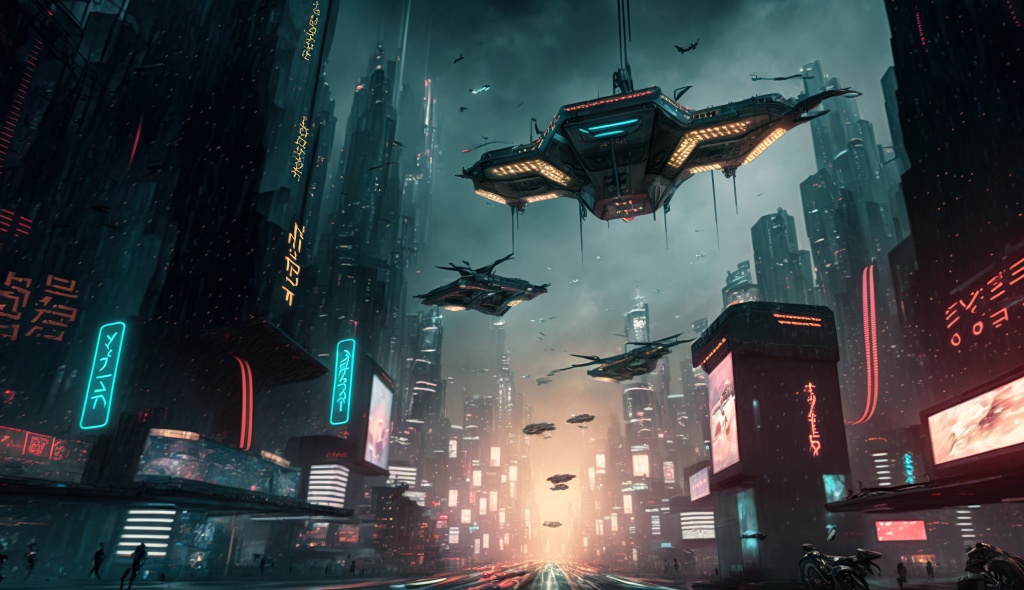

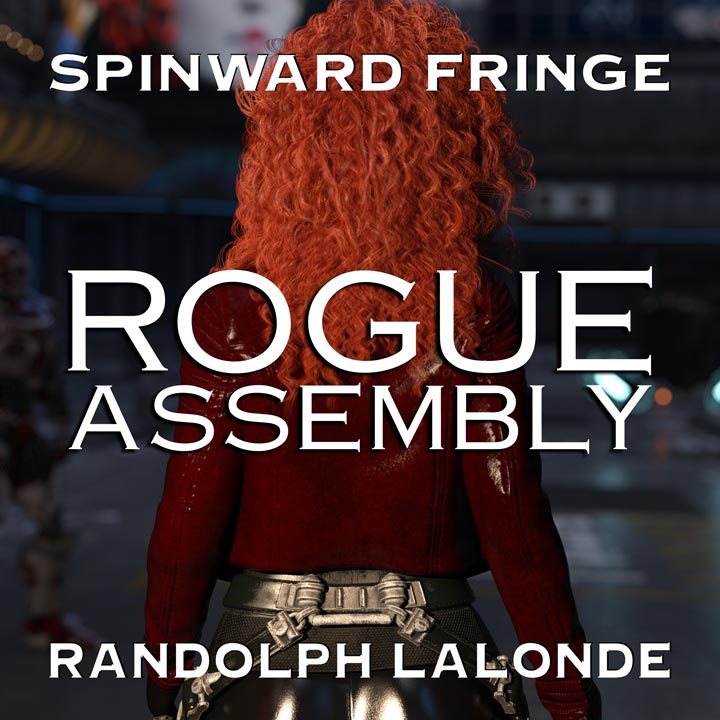
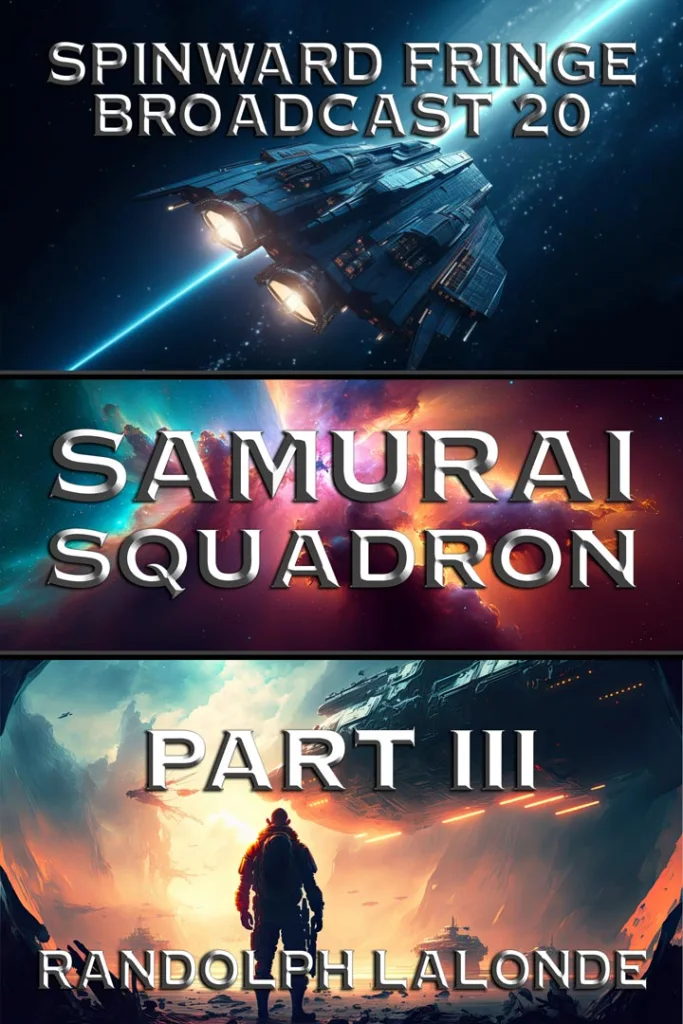
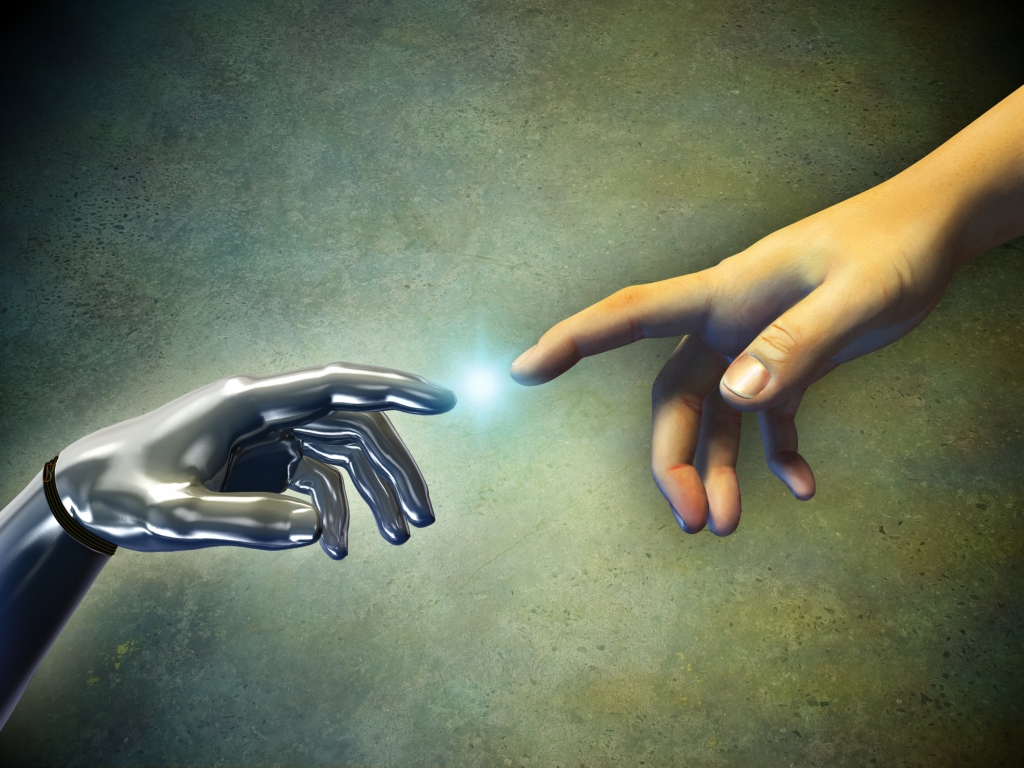
You must be logged in to post a comment.